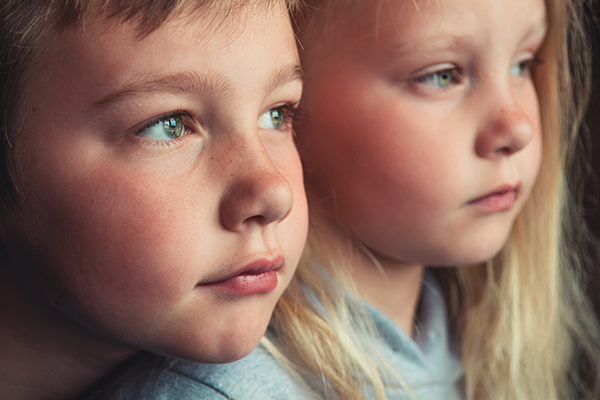Family Counseling Insights brought to you by California Psychotherapeutic Resources, Inc.
With millions of people having contracted Covid-19, it’s very possible that you know someone personally who has been affected. Although adults generally understand the situation pretty well, it’s quite another story with kids. Depending on their age and their relationship with the person who has the disease, they may not clearly understand what’s happening. That may result in anxiety that affects them in different ways.

Writing for Magination Press Family, an affiliate of the American Psychological Association dedicated to providing authoritative information about stress and anxiety in children, Wendy Moss, PhD, says “Knowing that COVID-19 is serious can help children understand the reasons for changes in their daily activities, but it can also lead to them having more concerns about a loved one diagnosed with it. They may fear that they will catch it too!”
Helping kids cope with any anxiety they may feel begins by talking to them. Here are some tips to think about in advance of that conversation, according to Moss:
- “Think about whether or not your child would benefit from knowing that the person has COVID-19.
- “When possible, wait to talk with your child until you have had a chance to think through how you want to explain the situation.
- “Let your child know that he or she has a support team (name them). If one person isn’t available, there are others who will step in as caregivers (this helps in case you, unfortunately, also get sick).”
That conversation may very well prompt your child to ask questions. They may also act like it doesn’t matter, in which you case Moss recommends that you “Monitor your child for changes in sleep, appetite, behavior, complaints, focus, and mood. These changes are sometimes a sign that your child is under stress. Also, be prepared for your child to ask you a question when you least expect it.”
If a close relative is struck with Covid-19, especially if it’s a parent, there are some special considerations to be aware of. For instance, “Being separated from the ill parent can lead to some children experiencing anxiety, sadness, and anger,” says Moss. “Try to keep their schedule as routine as possible. Know that they may need you to be very patient as they try to deal with the relative being physically unavailable. Try new activities too, which can provide a brief distraction from the focus on the missing parent.”
Although the effort to vaccinate the population is well underway, Covid cases are still stubbornly with us. If someone you know becomes ill, think of any children who may be affected. That may be when you’ll want to gather more information here.